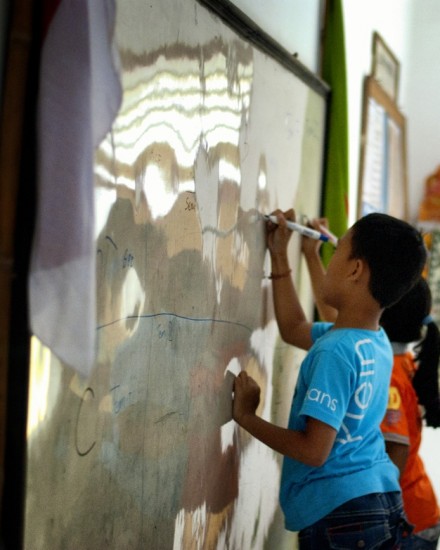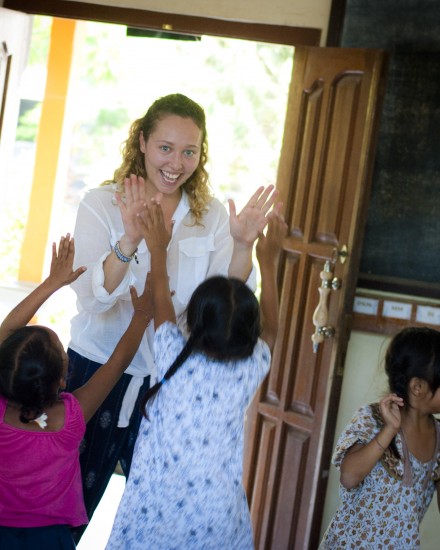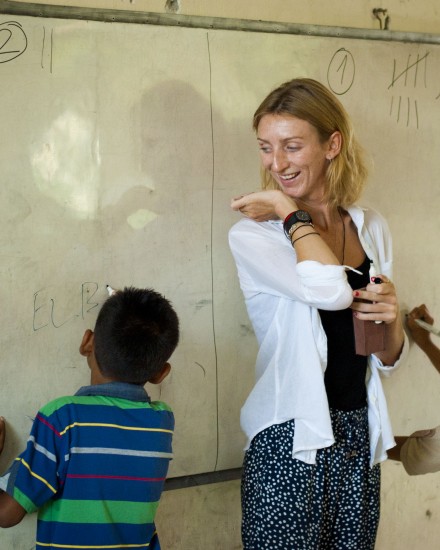Special needs
Special needs in Indonesia
Special needs in Indonesia



VP Bali’s mission is to provide – with the power of volunteers – classes and events to inspire and empower the children of Bali and their communities, in all social-economic classes, so they may reach their full potential.
Children with special needs don’t always have the opportunity to grow and develop like normal children and therefore VP Bali opened a program specifically for these children. We believe that all children should have the chance to develop their skills and talents.
Each district in Bali does have it’s own special education school. However, a lot of children are not accepted into these schools and if children are accepted, in many cases the family does not have the transportation and/or financial possibilities to bring their child to this school daily.
At VP Bali, the children will be supported individually, based on their level (communicational, educational, physical) and in close cooperation with the families to support based on the needs. We do this all with the main goal to reach their full potential.
Disability is determined by the social-cultural and physical environment. Where minimal specialist services, programs or facilities exist to meet the varied needs of a person with a disability in a daily life, a simple impairment may become a significant handicap. This is the case in Indonesia. The Indonesian government is unable to provide for the inclusion and integration of people with disabilities into able-bodied society.
People with disabilities are often considered as an embarrassment in Indonesia. A significant barrier faced by people with disabilities is the belief that their disabilities are a punishment from God for sin. In Bali in particular, the person with a disability is believed to be possessed by a supernatural spirit which must be exorcised. Disability is often seen as a matter of fate. This kind of judgement and stigma affect the lifestyles of people with severe disabilities. Besides that, basic knowledge ab People with disabilities are generally not encouraged to develop personally. They are not considered valuable members of their community and many remain house- bound, uneducated and unskilled.
Children with a certain disability - whether it be a physical disability or mental disability - are not able to remain included into the regular education system. This means that these children are forced to stay at home instead of learning new skills in school. However, for this group it is highly important to learn and improve on their skills. To be able to start educating this group it is significantly important to influence the view of the parent or care takers on disabilities. Since they are the one that is making the decisions. With their allowance, this group can be taught and the acceptance towards them will grow.
Next to that, the influence of the community plays a big role in the acceptance of this group. If the community agrees with the purpose of the school, it will be easier to break the barriers that currently exists.
According to the Primary Health Research Survey (RISKESDAS 2007), some 4% of 15 to 19 year olds have significant difficulties in at least one functional domain (vision, hearing, walking, concentrating and understanding others as well as self care) and therefore are considered as living with a disability. The Census 2010 found that around 2% of children aged 0 to 14 years have a disability. A two% share among all children aged 0 to 18 in Indonesia would add up to 1.5 million children, a 4% share increases the total number to some 3 million children and adolescents living with a disability.
